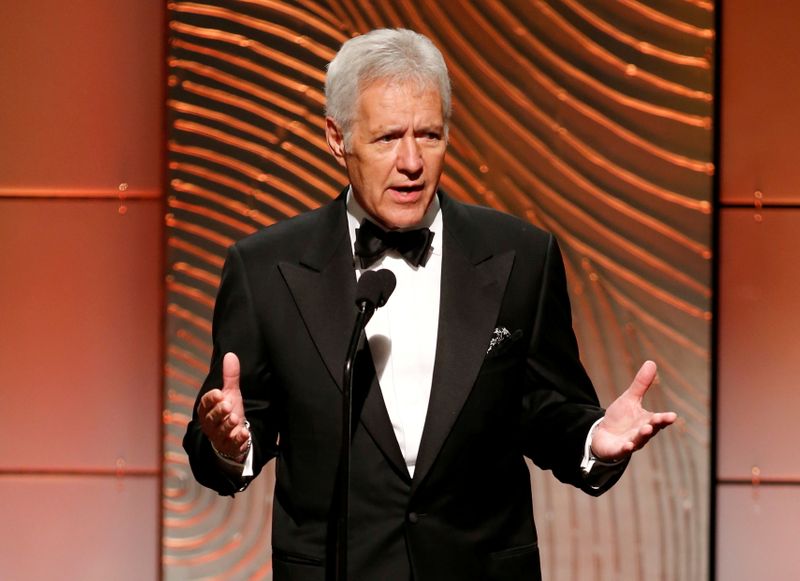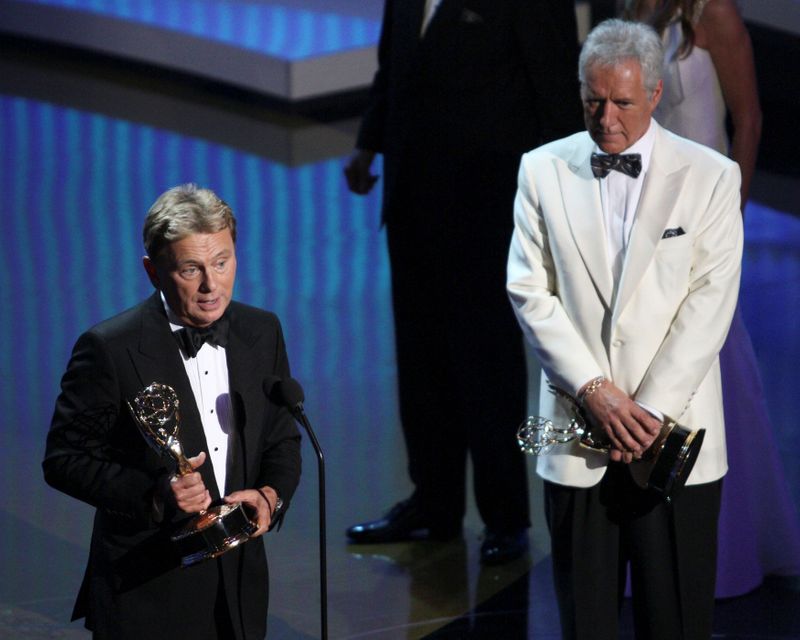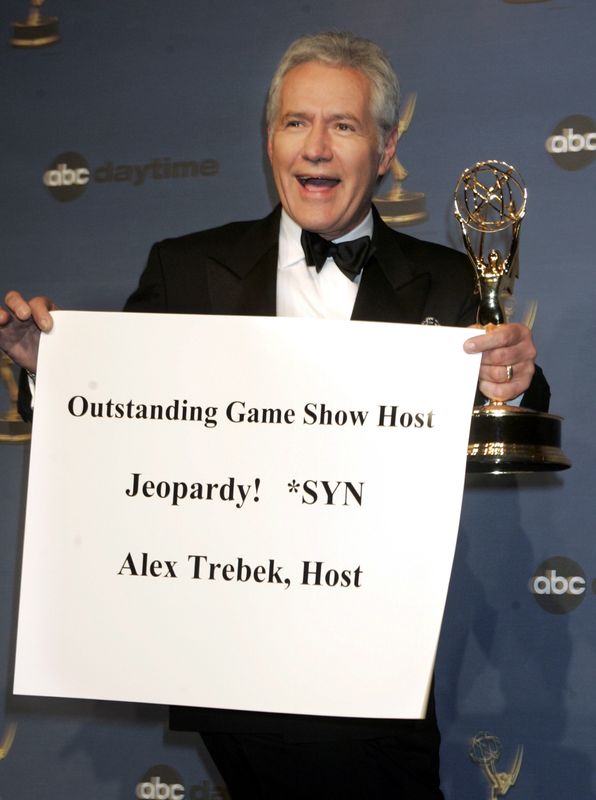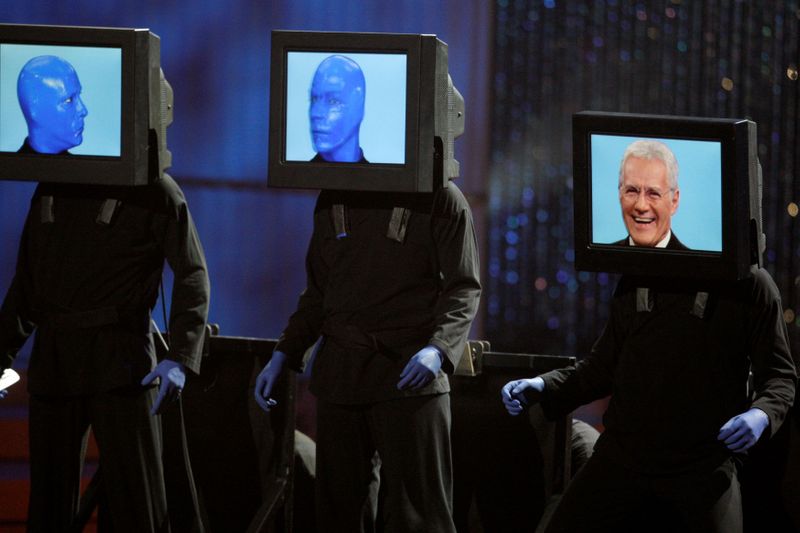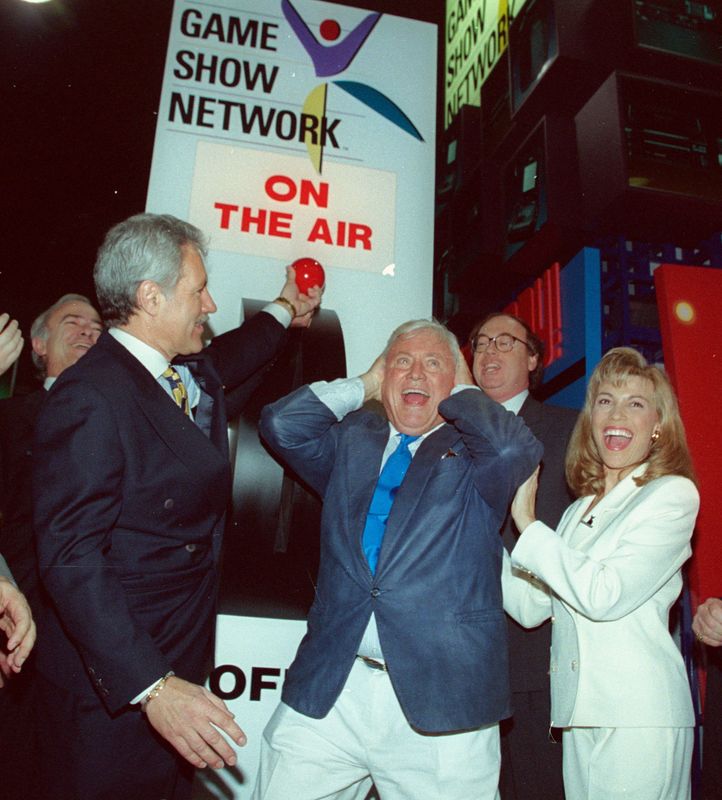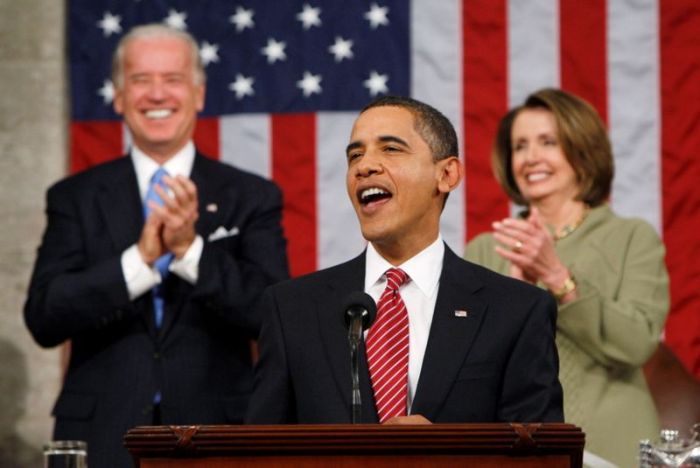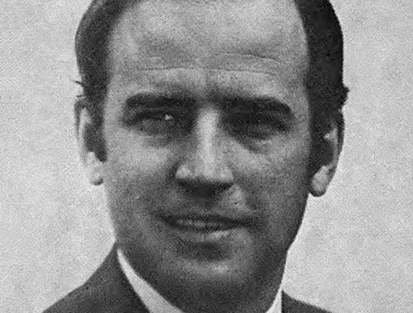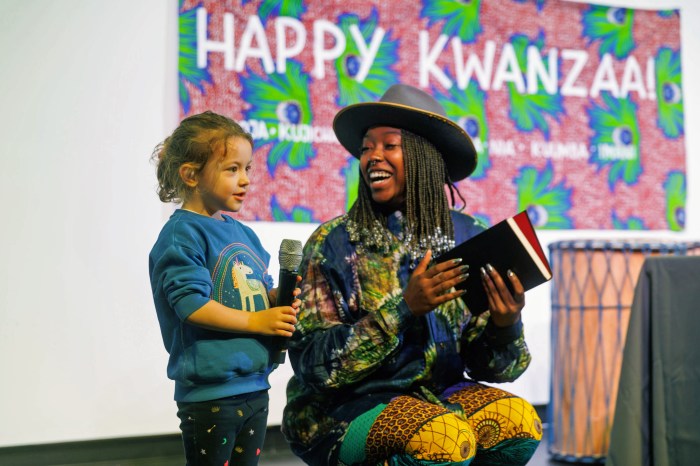LOS ANGELES (Reuters) – “Jeopardy!” game show host Alex Trebek died on Sunday at the age of 80, and his passing was mourned by fans who called the brainy quizmaster a nightly source of information and sheer joy.
The death of Canadian-born Trebek, who in March 2019 revealed his diagnosis of stage IV pancreatic cancer, was shared on the show’s official Twitter account. Trebek passed away peacefully at home surrounded by family and friends, the show’s tweet said.
It quickly drew condolences from Canadian Prime Minister Justin Trudeau and others.
“We have lost an icon,” Canadian Prime Minister Justin Trudeau said on Twitter.
Trudeau said Trebek instilled “a love for trivia” for millions around the world. Trebek was much loved in Canada, and he was proud of his Canadian roots.
“Alex Trebek was the pride of Sudbury and a strong supporter of his alma mater the University of Ottawa,” said Erin O’Toole, the leader of the main Conservative opposition party in Canada.
Trebek donated millions to his alma mater over the years, and in a 2019 interview with the Canadian Broadcasting Corp., he said Ottawa, where he got his first broadcast experience with the CBC, was his favorite city in Canada.
For some fans, news of Trebek’s death surpassed the world’s biggest news story – Joe Biden winning the U.S. presidency.
“I don’t really care about election lawsuits or transition plans, I just want to dwell on how much Alex Trebek and JEOPARDY! meant to me as a small kid who turned into a trivia maniac. It was always the best game show on television by far. Nothing approached it, or him,” said a Twitter user identified as @EsotericCD.
Twenty years after “Jeopardy!” first aired in 1964, Trebek became the face of the show and turned it into a ratings powerhouse.
“Jeopardy!” which requires contestants to display their knowledge of a broad range of trivia topics by providing their answers in the form of a question, has consistently drawn more than 20 million viewers a week in the United States and Canada, making it the most-watched quiz show in those markets.
Its ratings have risen even higher when contestants have racked up several weeks of consecutive wins.
Trebek, who was known for engaging contestants with straight-faced but witty banter and for his scholarly demeanor and scrupulous pronunciation, hosted more than 7,000 episodes of “Jeopardy!”
Trebek won six Emmy Awards for outstanding game-show host, most recently in 2019, and also received a Lifetime Achievement Emmy in 2011. The Hollywood Reporter said in a 2014 article that Trebek was earning $10 million a year.
CANADA TO CALIFORNIA
Trebek was born in the nickel-mining city of Sudbury, Ontario, the son of a Ukrainian immigrant father and a French-Canadian mother.
He earned a degree in philosophy at the University of Ottawa, beginning his career in broadcasting while still attending school.
After hosting a number of television shows in Canada during the 1960s, Trebek was encouraged to move to California in 1973 by the late actor Alan Thicke, a fellow Canadian, to host a short-lived NBC game show called “The Wizard of Odds.” He hosted a few other shows before joining “Jeopardy!”
Television personality Merv Griffin, along with his wife, Julann, came up with the idea for “Jeopardy! in the 1960s.
Art Fleming, who died in 1995, served as the show’s original host in its initial run from 1964 to 1975 and in a 1978-79 revival.
When Griffin revived “Jeopardy!” again after a hiatus of several years, producers chose Trebek to host it and Trebek also helped produce the show for his first three seasons.
One of the gigs that helped him secure the position was a temporary role on “Wheel of Fortune,” another game show Griffin had created, according to an interview Trebek gave in 2007.
Viewers became oddly attached to the mustache Trebek sported from early in his career until he shaved it off in 2001. It made headlines when he grew back the mustache in 2014.
Trebek is survived by his wife, Jean, and their two adult children, Emily and Matthew.
(Reporting by Alex Dobuzinskis; Additional reporting by Barbara Goldberg; Editing by Dan Whitcomb and Peter Cooney)

